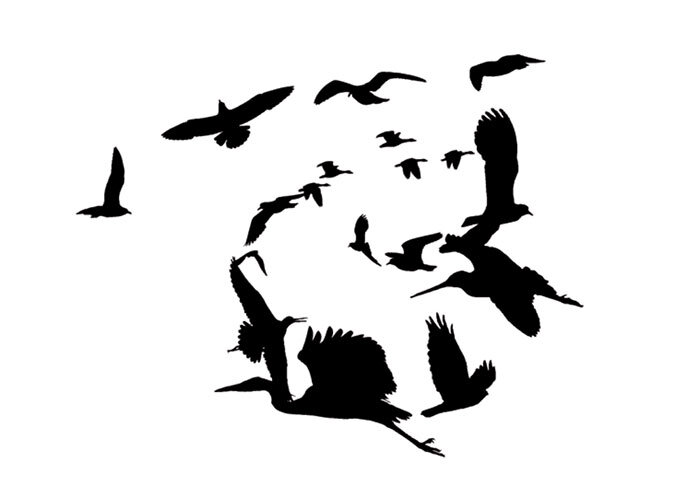Our story,
What began as a workshop by designer Annelys de Vet at the Estonian Academy of Arts in 2003 has grown into a participatory design methodology and—since publisher Kurt Vanbelleghem joined in 2018—a self-publishing platform, with the series' 15th, 16th, and 17th editions on the way.
After creating the first Subjective Atlas of the EU from an Estonian perspective, de Vet invited her design students in Eindhoven to map their Netherlands, documenting lived realities that revealed deeper social and political dynamics. The third Subjective Atlas of Palestine profoundly shaped the trajectory of the series; mapping experiences of life under occupation—where identity and history are forcibly excluded from normative maps. It underscored the urgency of counter-mapping as a form of resistance. How can subjective mapping amplify voices, challenge power structures, and reclaim space? This marked a turning point, reinforcing the subjective atlas as a tool for agency and self-representation.
Over time, artists, activists, and institutions worldwide reached out to collaborate, resulting in subjective atlases from Pakistan to Colombia, Amsterdam to Brussels, and beyond. Together, we have mapped places from the inside out through deeply collaborative and participatory processes, weaving personal narratives with political urgency. Each atlas is unique and rooted in its local context, yet collectively, they form a growing collection that challenges normative cartography and promotes a plural, situated, and nuanced understanding of our diverse—but radically interconnected—worlds.
Subjective mapping of Lubumbashi,
workshop, SIRIMUKA Mobile Journalisme, October 2024
Subjective mapping of Bosnia & Herzegovina,
Video report, Perspectiva, May 2023
Subjective mapping of Amsterdam,
Project pesentation,Pakhuis de Zwijger, 22 October 2021
method,
Each invitation to create a subjective atlas comes from within the community and is rooted in local, social and institutional frameworks. The local partner defines the scope of the atlas—whether mapping a country, region, or city—and situates the tensions and questions the atlas seeks to address as a counternarrative.
The local partner hosts workshops in various locations and with different groups following the artistic and participative format of Subjective Editions. During these sessions, participants are invited to explore and map what living in their region means to them through a specific phenomenon, experience, or observation that is close to their reality and can be mapped.
Subjective Editions provides the methodology, guidance, and a digital toolbox to support the local designer, editor, and project coordinator in facilitating the mapping process. The local team secures funding and resources, and supports participants in creating and submitting their work. Subjective Editions acts as editor-in-chief, overseeing the final stages of production, including curation, finalisation, and printing. The local partner organises the book launch and activates its content through events encouraging public interaction, such as exhibitions, discussions, and participatory activities.
impact,
The Subjective Atlases disrupt traditional cartography by presenting nuanced, lived experiences that challenge dominant narratives. Instead of fixed borders or standardised symbols, they reveal the complexities of communities from the inside out, creating counter-narratives that open new ways of seeing and being.
From the initial workshops to developing creative contributions, participants engage in conversations that build connections, raise awareness, and deepen their understanding of shared and divergent perspectives. Drawing from personal, lived experiences, they emphasise the interplay between the personal and the political, fostering community awareness and dialogue.
Once published, the Subjective Atlas circulates within and beyond the local context. Through exhibitions, presentations, and community events, it invites broader audiences to engage with its content, sparking new conversations and expanding discourse around identity, belonging, and representation. Over time, the growing collection of Subjective Atlases has become an archive of plural, situated knowledge, encouraging us to question how we situate ourselves in the world and to recognise the complex, interconnected realities that shape our lives.
organisation,
Subjective Editions is registered as a Belgian non-profit organisation (vzw), with an office in Lokeren, a studio in Sint Pieters Leeuw, and an international team. For each atlas, we work with local partners and international distributors. Our organisation consists of Annelys de Vet (founder and editor-in-chief) and Kurt Vanbelleghem (producer and publisher), as well as diverse interns.
As a non-profit, we do not have independent funding, so our projects rely on our partners to secure financial support. However, we assist with writing funding applications and share insights from previous proposals.
Dr. Annelys Devet is a Belgian-based Dutch designer, researcher, and educator. She initiated the subjective atlas series because she believes in the importance of visualising place-based understanding of our worlds. She is the series' editor-in-chief and coordinates workshops and design processes. See www.bureaudevet.be
Kurt Vanbelleghem is a Belgian curator, publisher and cultural entrepreneur. He focuses on the development and implementation of artistic strategies within societal contexts. He is co-founder of Subjective Editions and coordinates the operational, presentation and distribution processes. See: www.presentfuture.be
partners,
The Subjective Atlas methodology has empowered people to amplify the voices of their communities. With a shared ambition and a clear vision for organising the creation process, they set the foundation for collaboration.
When someone expresses a profound interest, we explore ways to make it happen. The local partner defines the atlas’s scope—whether mapping a country, region, or city—and takes ownership of its content, identifying the tensions the atlas aims to challenge as a counternarrative. They also choose which organisations or communities to involve and whose perspectives to represent. Ultimately, each contributor is free to address their own stories and concerns.
Creating an atlas is a collaborative process that often brings together a unique team for the first time. The key roles remain adaptable to fit local dynamics, skills, and resources. These roles typically include the initiator, project leader, fundraiser, producer, graphic designer, interns, artists, institutions, and an editorial board with Subjective Editions as editor-in-chief. Together, they guide the project from securing resources to designing, producing, and activating the final work, ensuring the atlas reflects the voices it seeks to amplify.
reviews,
awards.
The Subjective atlas of Palestine has been awarded as one of the ‘Best Book Design' 2007’. The Subjective atlas of Hungary and the Subjective altas of Mexico received a Henry van de Velde Label 2011. The Subjective atlas of Fryslân was nominated for the Vredeman De Vriesprijs 2013.








































